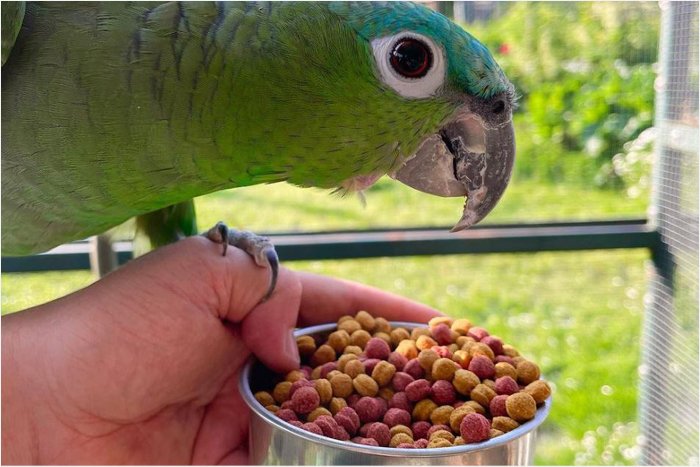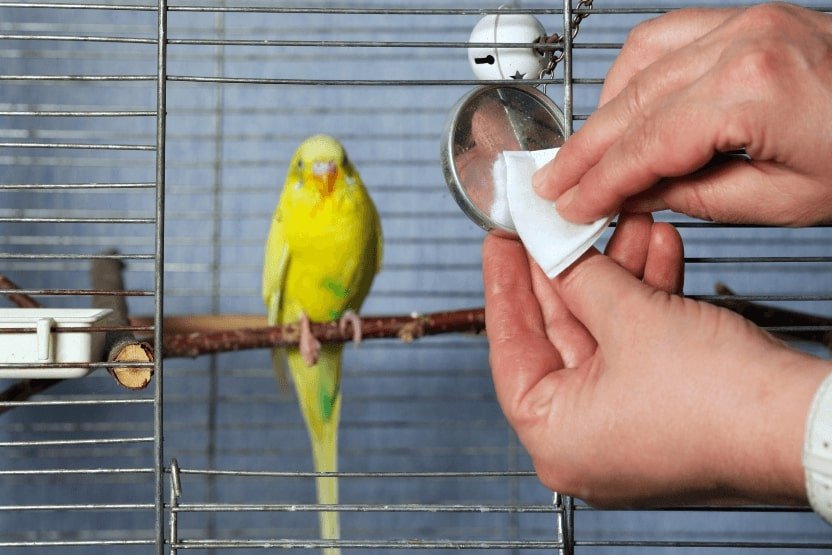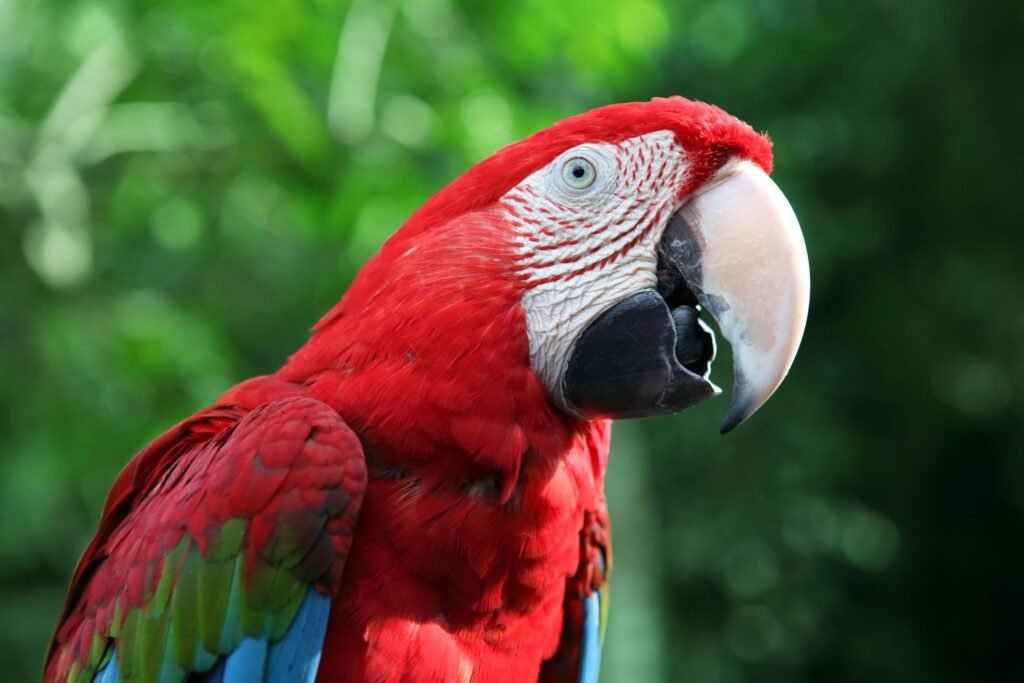Parrots are intelligent, gregarious, and charismatic creatures, but fabulous pets they do make. However, it takes a lot more than assembling a cage and feeding them to care for a parrot. Diet, through to mental stimulation, supports their proper health. In this guide, we will cover everything you should know to keep your parrot healthy, happy, and thriving.
1. Setting Up the Perfect Home for Your Parrot Is the Best Parrot Care Guide
The Ideal Cage:
Parrots need a cage that will give them the freedom to stretch their wings and move around. Bigger is always better!
- Bar Spacing: The spacing of bars must be safe for your parrot’s size. Bars that are too wide can cause escapes or injuries.
- Location: Position the cage in a quiet room with sufficient lighting, where your parrot can view and interact with you. Do not place the cage near kitchens or drafty areas.
Basic Amenities
- Provide natural wood perches to maintain healthy feet.
Insert enough toys for your pet to chew on, climb on and discover. Switch toys occasionally to keep things interesting.
2. Best Food for Pet Parrots
A healthy diet is crucial for your parrot’s long and happy life. Feeding them the right foods ensures they get the nutrients they need.
Pellets as a Base
Pellets are specifically designed to offer nutritional balance to parrots. They should dominate your bird‘s diet.
Fresh Fruits and Vegetables
Diversify their food with fresh fruits and vegetables, including:
Fruits: Apples (seed removed), bananas, and grapes.
Vegetables: Carrots, spinach, broccoli, and bell peppers.
Other fatty food: Avoid things like avocado, chocolate, alcohol, and anything with caffeine.
Fresh Water
Similarly, water is just as important as food. Change this daily to keep the water fresh and bacteria-free.
Want to read more about parrot diet? Check out our article on the best diet for pet parrots for a detailed guide!

3. Maintaining Your Parrot‘s Mental Stimulation
Parrots are smart, and mental stimulation can keep them happy. Bored parrots may begin to develop such habits as feather plucking or excessive screaming.
Fun Toys and Activities
- Puzzle toys will keep their problem-solving skills challenged.
- Chewable toys, such as untreated wood or paper, will fulfill that natural instinct to chew.
Social Interaction
- Spend time talking and playing with your parrot daily.
- Let them play with other family members or other pets but under close supervision.
- Teach your parrot tricks or words to strengthen your bond and keep their minds active.
 4. Maintaining Health and Hygiene
4. Maintaining Health and Hygiene
Health and Hygiene Keeping your parrot clean and healthy is part of their care.
Regular Grooming
- Nail Trimming: Prevents overgrowth.
- Beak Care: Provides a cuttlebone or mineral block to enable them to chew on and trim the beak naturally.
- Bathing: Most parrots enjoy a misting with water or a shallow bath, keeping the feathers clean and healthy.
Routine Vet Visits
- Routine Vet Visits Schedule yearly check-ups with an avian vet.
Watch for signs of illness, such as changes in appetite, droppings, or energy levels.
5. Understanding Parrot Behavior: The Best Parrot Care Guide
Parrots express themselves through body language, sounds, and actions. Knowing their behaviors will help you better understand their needs.
- Squawking: Often means they want attention or are excited.
- Fluffing Feathers: Normal for birds in grooming, but if repeated can indicate sickness.
- Beak Grinding: this is a sign of relaxation, normally at bedtime.
Stopping Negative Behaviors
Feather plucking or biting can result from stress, boredom, or health problems. If these issues arise, look for the root cause and consult an expert if necessary.
6. Exercise and Out-of-Cage Time
Parrots are active creatures and need regular exercise.
- Let Them Stretch Their Wings: Give your parrot time outside the cage to explore in a safe, supervised area.
- Climbing and Swinging: Provide ropes, ladders, and play gyms for climbing.
7. Building a Strong Bond: Parrot Care Guide
Parrots are social animals that can form deep bonds with their owners.
- Be Patient: It might take time for a new parrot to trust you.
- Reward Good Behavior: Use treats and affection to reinforce positive actions.
Spending quality time with your parrot daily will help build trust and a lifelong friendship.
Conclusion
Taking care of a parrot involves creating the right environment, feeding them a balanced diet, keeping them mentally and physically active, and ensuring their health. With love, patience, and proper care, your feathered friend will bring you joy for many years.
To learn more about giving your parrot the best diet, don’t miss our article on the best diet for pet parrots!